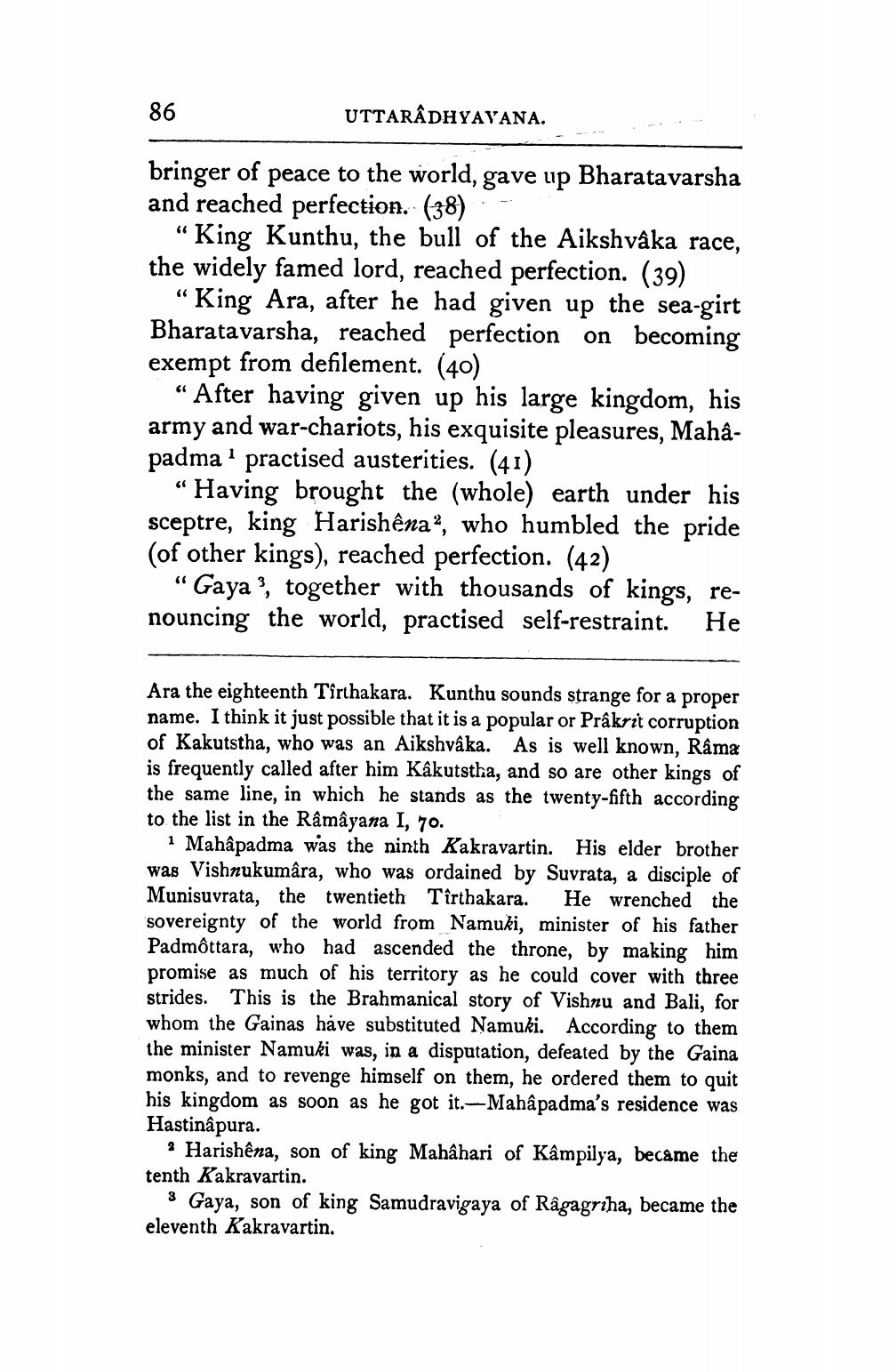________________
86
UTTARADHYAYANA.
bringer of peace to the world, gave up Bharatavarsha and reached perfection. (38)
“King Kunthu, the bull of the Aikshvaka race, the widely famed lord, reached perfection. (39)
"King Ara, after he had given up the sea-girt Bharatavarsha, reached perfection on becoming exempt from defilement. (40)
“ After having given up his large kingdom, his army and war-chariots, his exquisite pleasures, Mahâpadma practised austerities. (41)
“Having brought the (whole) earth under his sceptre, king Harishêna”, who humbled the pride (of other kings), reached perfection. (42)
"Gaya”, together with thousands of kings, renouncing the world, practised self-restraint. He
Ara the eighteenth Tirthakara. Kunthu sounds strange for a proper name. I think it just possible that it is a popular or Prakrit corruption of Kakutstha, who was an Aikshvâka. As is well known, Râma is frequently called after him Kâkutstha, and so are other kings of the same line, in which he stands as the twenty-fifth according to the list in the Râmâyana I, 70.
1 Mahậpadma was the ninth Kakravartin. His elder brother was Vishnukumâra, who was ordained by Suvrata, a disciple of Munisuvrata, the twentieth Tîrthakara. He wrenched the sovereignty of the world from Namuki, minister of his father Padmôttara, who had ascended the throne, by making him promise as much of his territory as he could cover with three strides. This is the Brahmanical story of Vishnu and Bali, for whom the Gainas have substituted Namuki. According to them the minister Namuki was, in a disputation, defeated by the Gaina monks, and to revenge himself on them, he ordered them to quit his kingdom as soon as he got it.—Mahậpadma's residence was Hastinapura.
? Harishêna, son of king Mahâhari of Kâmpilya, became the tenth Kakravartin.
3 Gaya, son of king Samudravigaya of Râgagriha, became the eleventh Kakravartin.




